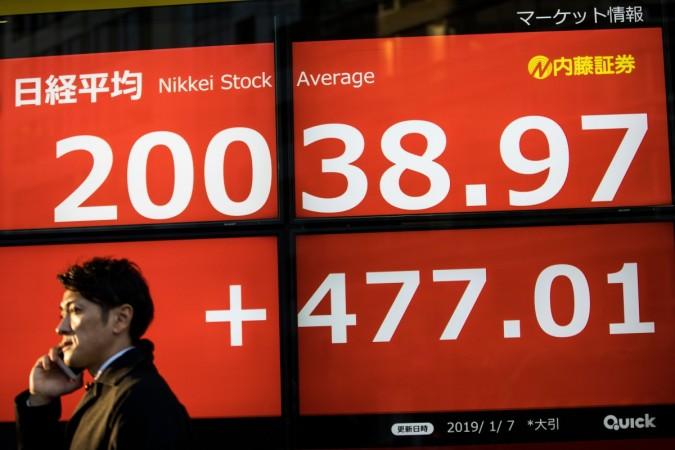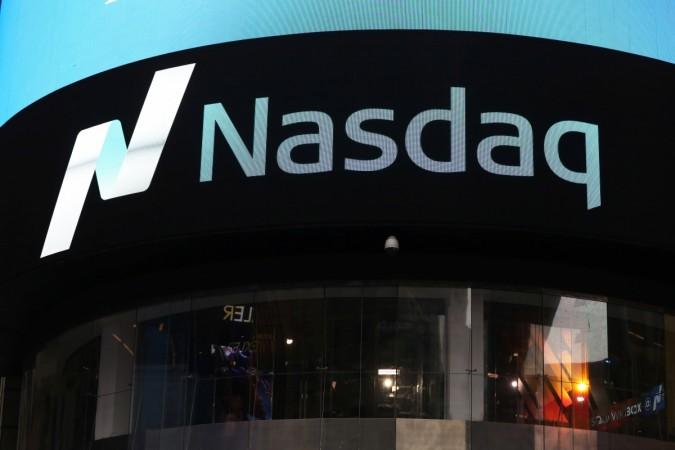
Asian stocks inched higher on Friday, buoyed by gains in U.S. technology shares, but gains were capped by worries over slowing growth in Europe and caution ahead of several key events next week including U.S.-China trade talks.
The euro struggled near a six-week low versus the dollar following dovish-sounding comments from European Central Bank President Mario Draghi, who expressed concerns about the eurozone economy.
A synchronized global economic slowdown is underway and any escalation in the U.S.-China trade war would trigger a sharper downturn, according to the latest Reuters polls of hundreds of economists from around the world.
MSCI's broadest index of Asia-Pacific shares outside Japan edged up 0.2 percent. The index was headed for a loss of 0.1 percent this week.
Australian stocks climbed 0.5 percent, South Korea's KOSPI added 0.7 percent.
Japan's Nikkei advanced 1 percent.
"Equities may be drawing some support but the markets are bracing for next week's events," said Masahiro Ichikawa, senior strategist at Sumitomo Mitsui Asset Management.
"The U.S.-China trade discussions will provide insight into how talks are progressing, while the British parliamentary voting is a key Brexit event. And there is also the FOMC (Federal Open Market Committee) meeting."
Chinese Vice Premier Liu He will visit the United States on Jan. 30 and 31 for the next round of trade negotiations with Washington.
The two sides are "miles and miles" from resolving trade issues but there is a fair chance they will get a deal, U.S. Commerce Secretary Wilbur Ross said on Thursday.
The British parliament will debate and vote on Prime Minister Theresa May's Brexit "plan B" on Jan. 29, and the U.S. Federal Reserve concludes a two-day policy setting meeting on Jan. 30.

The Nasdaq had risen roughly 0.7 percent on Thursday thanks to a rally by chipmakers, while the S&P 500 edged higher and the Dow closed nominally lower as anxiety about slowing global growth and the Sino-U.S. trade dispute undercut a spate of strong earnings.
In currency markets, the euro held steady at $1.1311 after losing about 0.7 percent overnight, when it brushed the six-week trough of $1.1289. The euro was down 0.5 percent this week.
The single currency slid after ECB President Draghi acknowledged on Thursday that economic growth in the euro zone was likely to be weaker than earlier expected due to the fall-out from factors ranging from China's slowdown to Brexit.
Germany, France and Italy, the euro zone's biggest economies, barely grew in the fourth quarter of 2018 and survey data showed on Thursday business activity across the euro zone expanded at the slowest pace since 2013 at the start of this year.
Germany has dropped its economic growth forecast for 2019 to 1.0 percent from 1.8 percent due to slower global economic growth and uncertainty about Britain's exit from the European Union, the Handelsblatt newspaper reported on Thursday.
The ECB had left its policy stance unchanged as expected on Thursday and Draghi's downbeat comments added to speculation that the central bank will hold back on interest rate hikes that some market watchers had expected in October.
The pound was up 0.3 percent at $1.3096 after brushing a two-month high of $1.3130, drawing support after The Sun reported on Thursday that Northern Ireland's Democratic Unionist Party has privately decided to back Prime Minister May's Brexit deal next week if it includes a clear time limit to the Irish backstop.
The dollar nudged up 0.05 percent to 109.67 yen and on track to end the week little changed.
The benchmark 10-year U.S. Treasury note yield was slightly higher at 2.724 percent after dropping 4 basis points overnight to a one-week low as concerns over slowing global growth supported safe-haven government debt.
U.S. crude oil futures were flat at $53.13 per barrel after gaining 1 percent the previous day on U.S. threat of sanctions on Venezuela.

















